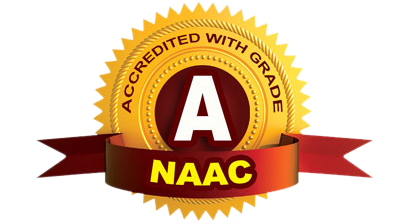About IT
The Department of IT at Keshav Memorial Institute of Technology was established in the year 2007 with an intake of 120. The Department focuses on preparing the students for wide range of IT careers. The Department of Information Technology has developed state-of-art labs. The department is accretediated by NBA from 2017.
Department is equipped with dedicated and experienced faculty who continuously upgrade their skills under the guidance of the founder Director Neil Gogte, who is one of the stalwarts in Information Technology. The department highly encourages Industry Institute Interaction to bridge the gap between Industry and the Institute by fulfilling their expectations in conduction of various workshops for students on latest emerging trends and technologies, which makes the students to explore and undertake challenging tasks confidently. The department has collaboration with reputed Organizations to explore, build, develop and enhance technical skills in trending technologies among faculty and students.
Every year most of the students are placed through campus recruitments in top most software companies like Amazon, Microsoft, SAP Labs, Adobe, Salesforce, Google, Darwin Box, Virtusa, and other reputed organizations. The department has required number of fully equipped and furnished computer labs which facilitates the students to have their active participation and concentration. The department has CSI Institutional Membership for with students & faculty as members. The CSI student Chapter regularly organizes various technical events and workshops in current technologies for the enhancement of student knowledge. The department is also aiming to introduce Masters and Doctoral research programs.
Courses Offered
| S.No | Name of the Degree | Course | Total Intake | Management Seats/NRI Seats | Convenor seats |
|---|---|---|---|---|---|
| 1 | B.Tech | Information Technology (IT) | 120 | 36 | 84 |
Vision of the Department
To produce globally competent graduates to meet the modern challenges through contemporary knowledge and moral values committed to build a vibrant nation.
Mission of the Department
To create an academic environment, which promotes the intellectual and professional development of students and faculty.
To impart skills beyond university prescribed to transform students into a well-rounded IT professional.
To nurture the students to be dynamic, industry ready and to have multidisciplinary skills including e-learning, blended learning and remote testing as an individual and as a team.
To continuously engage in research and projects development, strategic use of emerging technologies to attain self-sustainability.
Program Educational Objectives (PEOs)
Graduates will have successful careers in computer related engineering fields or will be able to successfully pursue advanced higher education degrees.
Graduates will try and provide solutions to challenging problems in their profession by applying computer engineering principles.
Graduates will engage in life-long learning and professional development by rapidly adapting changing work environment.
Graduates will communicate effectively, work collaboratively and exhibit high levels of professionalism and ethical responsibility.
Programme Outcomes (POs)
Engineering Graduates of will be able to:
Engineering Knowledge: Apply the knowledge of mathematics, science, engineering fundamentals, and an engineering specialization to the solution of complex engineering problems.
Problem Analysis:Identify, formulate, review research literature, and analyze complex engineering problems reaching substantiated conclusions using first principles of mathematics, natural sciences, and engineering sciences.
Design/Development of solutions: Design solutions for complex engineering problems and design system components or processes that meet the specified needs with appropriate consideration for the public health and safety, and the cultural, societal, and environmental considerations.
Conduct Investigations of Complex problems: Use research-based knowledge and research methods including design of experiments, analysis and interpretation of data, and synthesis of the information to provide valid conclusions.
Modern Tool Usage: Create, select, and apply appropriate techniques, resources, and modern engineering and IT tools including prediction and modelling to complex engineering activities with an understanding of the limitations.
The Engineer and Society:Apply reasoning informed by the contextual knowledge to assess societal, health, safety, legal and cultural issues and the consequent responsibilities relevant to the professional engineering practice.
Environment and Sustainability:Understand the impact of the professional engineering solutions in societal and environmental contexts, and demonstrate the knowledge of, and need for sustainable development.
Ethics: Apply ethical principles and commit to professional ethics and responsibilities and norms of the engineering practice.
Individual and Team Work: Function effectively as an individual, and as a member or leader in diverse teams, and in multidisciplinary settings.
Communication: Communicate effectively on complex engineering activities with the engineering community and with society at large, such as, being able to comprehend and write effective reports and design documentation, make effective presentations, and give and receive clear instructions.
Project Management and Finance: Demonstrate knowledge and understanding of the engineering and management principles and apply these to one’s own work, as a member and leader in a team, to manage projects and in multidisciplinary environments.
Life-Long Learning: Recognize the need for, and have the preparation and ability to engage in independent and life-long learning in the broadest context of technological change.
Program Specific Outcome's (PSO's)
An ability to analyze the common business functions to design and develop appropriate Computer Science solutions for social upliftments.
Shall have expertise on the evolving technologies like Python, Machine Learning, Deep Learning, Internet of Things (IOT), Data Science, Full stack development, Social Networks, Cyber Security, Big Data, Mobile Apps, CRM, ERP eetc.






